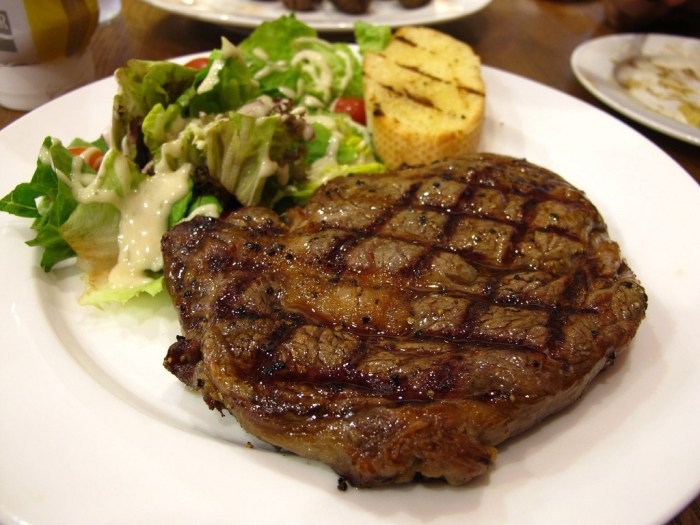The average Belgian eats between 770 and 980 grams of meat per week, or two to two and a half times more than the official recommendation. The guidelines suggest a maximum consumption of 400 grams of meat per week. Figures from an international report by Greenpeace, devoted to the impact of meat consumption on global warming, evidence the point.
The environmental organisation deplores, “Only 10% of Belgians respect the official recommendations. Even amongst children aged 3 to 13 years, the consumption of animal proteins is nearly twice as high as the required daily amount.”
Greenpeace justifies that eating less meat “can only be advantageous in terms of health, climate, the environment and animal well-being, whilst each year in Belgium more than 300 million animals are killed for consumption.” It says, “If nothing is done, in the coming decades agriculture will represent 52% of the total greenhouse gas emissions, including 70% for meat production and dairy products.”
However the organisation notes changes in consumption habits, especially in Belgium where 66% of those questioned as part of the study, spoke of being prepared to reduce their meat consumption. Indeed 60% had already done so during the last five years. Moreover, the majority of Belgians surveyed (54%) consider that it is necessary to eat less meat to fight global warming. Some 72% consider that it is not healthy to eat too much meat.
Sébastien Snoeck, an Agriculture and Cattle-rearing expert at Greenpeace, says, “The entire food system should be reconsidered.” He adds, “Governments continue to massively subsidise industrial breeding, so as to produce even more, whilst the current meat produced is already a threat to our health, that of our children and our planet. They should better support farmers focusing upon organic farming, offering them a better price for their products and encouraging citizens to eat more local produce and to eat vegetarian products more frequently.”
On the strength of its convictions, the environmental organisation has decided to launch a global campaign, aiming to reduce by half both the production and consumption of meat by 2050. It claims that this is “a proposal which would enable not only the reduction by 64% of greenhouse gas emissions compared to the current model, but would also provide sufficient food for two billion additional human beings.”
Sébastien Snoeck concludes, “Deciding what lands on our plate is both as individuals, and as society as a whole, one of our most powerful weapons against climate change and environmental degradation.”
The Brussels Times

